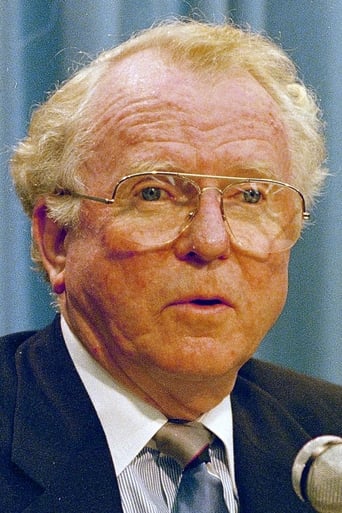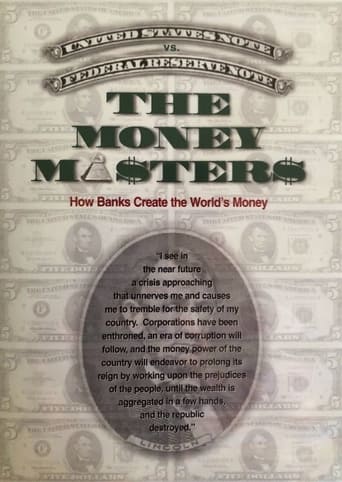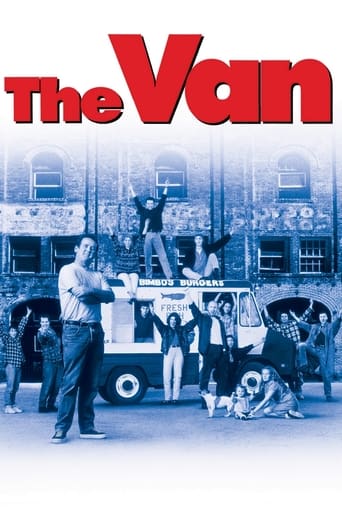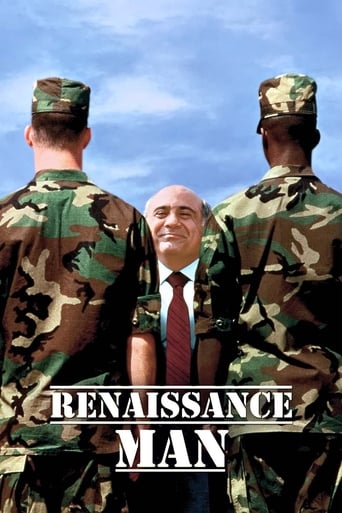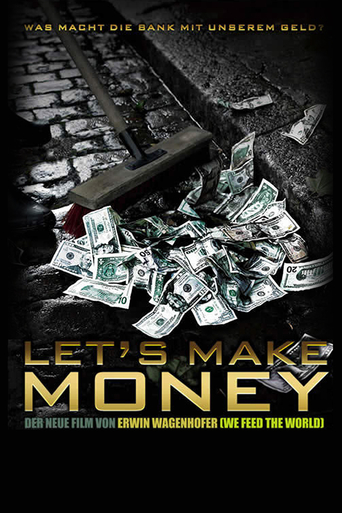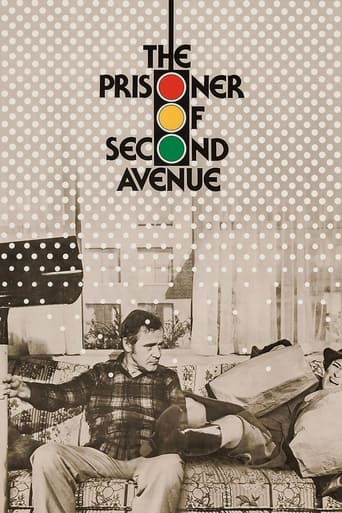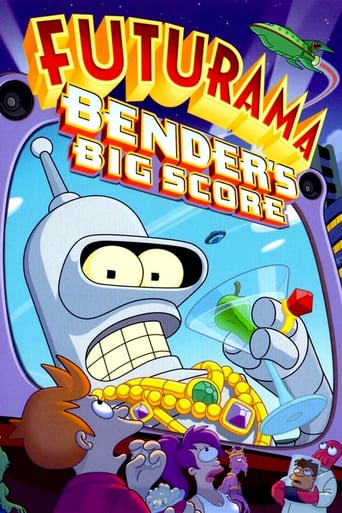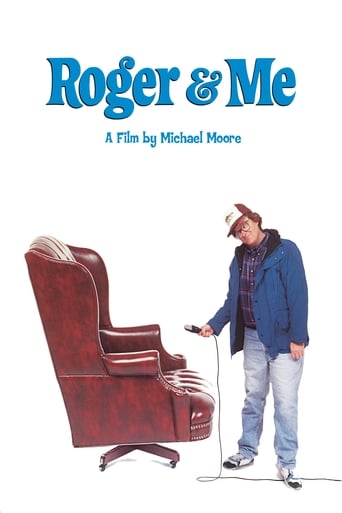
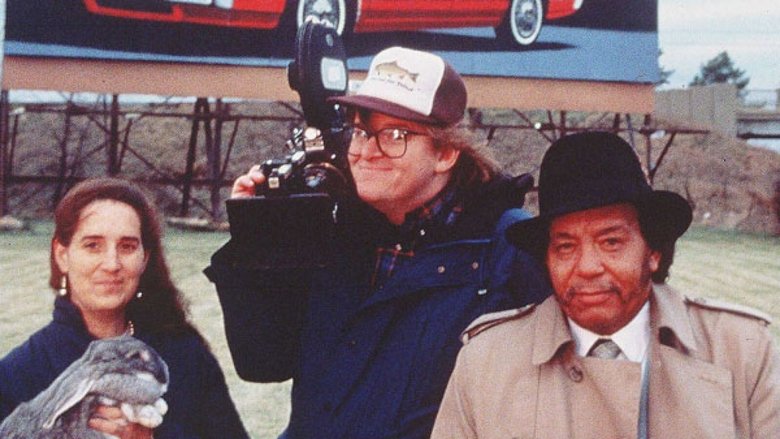
Roger & Me (1989)
A documentary about the closure of General Motors' plant at Flint, Michigan, which resulted in the loss of 30,000 jobs. Details the attempts of filmmaker Michael Moore to get an interview with GM CEO Roger Smith.
Watch Trailer
Cast
Similar titles
Reviews
You won't be disappointed!
Very very predictable, including the post credit scene !!!
To me, this movie is perfection.
It really made me laugh, but for some moments I was tearing up because I could relate so much.
Roger & Me is a documentary narrated and directed by Michael Moore. It portrays the regional negative economic impact of General Motors CEO Roger Smith's summary action of closing many auto plants in Flint, Michigan, costing 30,000 people their jobs at the time and economically devastating the city.Once the site of a thriving General Motors plant, Flint went quickly to seed when GM decided to close down and move out. As Moore pokes around what has been described by one magazine as "the worst place to live in America", he finds out how the local populace is coping with GM's betrayal of the American Dream. Among those visited are a family who is evicted just before Christmas, and an enterprising middle-aged woman who set up a thriving business slaughtering and skinning rabbits. Never feigning objectivity,he contrasts the impact of the shutdown on the average Joes and Janes with the diffident reaction of Flint's power elite. The latter's patronizing attitude towards the unemployed multitudes is succinctly captured in the scenes in which visiting celebrities Robert Schuller, Anita Bryant, Bobby Vinton and Pat Boone exhort the citizenry to grin and bear it. Even more out of sync is "Miss Michigan" Kaye Lani Rae Rafko, who in her morale-boosting speech to the disenfranchised GM employees begs them to pull for her in the upcoming Miss America pageant! The film's through line is Moore's futile effort to locate GM chairman Roger Smith, so that he can show Moore first-hand the utter devastation of Flint.In this documentary,Michael Moore makes a good movie, and without inventing so many facts inspite of his obviously conceited and simple- minded attitude.Also,this is a this is a scathingly biting satire of Reagonomics that captures the zeitgeist of the late 1980's. This portrait of Reagan's America and the tarnish on the American dream comes down to a simple question: what is corporate America's responsibility to the country's citizens? That's a question no one at GM wants to answer.
Michael Moore's first major film was one of his best in my opinion for two reasons. First off, since he did not yet have a trademark style, he did not try to go over the top in this film as much as he does in his subsequent efforts. He does his normal routine of tracking people down in an effort to embarrass them by asking them pointed questions, but for most of the film he lets the story and the citizens of Flint do the talking. As you probably already know, this is the story of Moore's hometown, Flint, Michigan, and the utter despair that fell upon it after GM began shuttering auto plants under the supervision of then CEO Roger Smith. The film really highlights how clueless Flint's elite are as to the suffering that all of this "consolidation" is causing. At one point in the film Moore is talking to some wealthy people at a party who seem to think they are doing the unemployed some kind of favor by hiring them to act as living statues at one of their fêtes. When he asks the party goers about what is going on in Flint they seem somewhat offended that there is such "negative publicity" circulating and say there should be more emphasis on the positive things going on in Flint - they name the symphony and the opera. Ah yes, let them eat opera glasses! The second reason I consider this film to be one of Moore's best is that even though this film was made in 1989, it is still interesting and relevant today. This is because the contrast between what average working people have to endure - the struggle to find secure jobs with decent benefits and their increasing vulnerability - and the desire of the captains of industry to improve the bottom line at any cost ... as long as it doesn't cost them ... has only worsened and deepened over the last 21 years since this film was first made.
As a prototypical youngest child I have an affinity for feather-ruffling and rabble-rousing. As such, I love these types of movies hence the 8-star rating. Still, this film bothered me in a few ways; the primary one is the basic question of exactly what do corporations owe their employees? Tastes change, technology changes, and not surprisingly business tactics change. I am not sure if Moore or the employees stated this, but what exactly did they want/expect? Of course they wanted to retain their jobs but as I understand it the owners of corporations are looking for increased profits. Cutting costs are one way to do that. One way GM found to cut costs was to manufacture abroad. So, why wouldn't GM do that? Due to employee loyalty? I'm not sure a corporation can exist if employee loyalty comes before profits. I think Moore should have also gone after primary stockholders/owners as well.As I watched, I had a similar thought that I had to consider the source and remember that Moore is a business man and being controversial sells tickets. I had that same feeling watching Sicko. It's like Moore's documentaries outcomes are predefined and he will see to it that it turns out that way. I thought Moore's asking those presumably rich people(and Miss Mich) their impromptu thoughts on the situation was unfair. I would welcome more intelligent debate where both sides are given some time to prepare. Why Roger didn't talk to Moore surprised me maybe Moore liked it that way. After all, did Moore truly do all he could to get an interview? I will bet you this. If on hiring day, every employee was informed that in the future GM may adopt tactics that would result in job losses, but that if this occurred laid-off employees might receive a severance package, the vast majority would still have taken the job regardless of these known pitfalls.To me, going to work for a corporation is a buyer-beware situation. As employees we need to maximize our time there. Take your vacations, max out your 401K, take advantage of tuition assistance, get physicals, and watch the behaviors of those successful counterparts who always seem to be in the right place at the right time. Also, if corporations worry you, don't work for them, go to work for a private firm but don't get there and complain about all the benefits your buddies at Verizon (or wherever) are getting.On a side note (perhaps somewhat relevant considering all the layoffs we're experiencing), we Americans need to start living more practically. If you make $50K/year live like you make $43K. If you participate in a 401K plan remember that a 401K is not a rainy-day account, it is a retirement plan. If you do not need a 2000sqft home, don't buy one. Cars and kids don't need their own bedrooms. Smaller homes encourage us to get out of the house which is not a bad thing. While having your own bathroom is convenient, it is so for about 30 minutes/day: SHARE them.Gas prices fluctuate. If you find yourself stressing about that, buy a smaller car and drive less....it can be done. Instead of packing up the bikes and kids and driving them to a bike trail, ride your bikes to the store, bank, video store, zoo, etc.... Also, smaller cars get you from point A to point B exactly like big cars do...only cheaper. While driving smaller, efficient vehicles is not considered cool is beyond me, this means the driver is smart and may have more money to spend...on you. This is not to say that you shouldn't have a comfy car....the problem is when people pull out food-stamps then hop into a brand new Maxima or Escalade.
This film is the most creative of Moore's efforts. It details the plight of Flint, Michigan because of General Motors (GM) layoffs in the late 1980's. It is named Roger & Me because the films story line is Morres pursuit of Roger Smith, the CEO of GM at this time, to find out why he is laying off all these workers & moving a bunch of jobs from Flint to Mexico.Remember, this is before the twin disasters of NAFTA & GAAT in the 1990's by Bubba's Administration & Party in 1993. Moores pursuit of Smith is super imposed over the compelling story of the suffering in Flint. All the story telling in this is well done.The film clips of GM's heydays in the 1950's with Pat Boone & Dinah Shore provide a great intro to the film. There are several dramatic reactions by auto workers getting laid off & their desperation. The city of Flints angst is well documented too.Moore never does catch Roger Smith. This is too bad because historically there is a very solid reason that GM started moving these jobs out of the country. Roger Smith would not have told the full truth if he had caught him. Smith would have told Moore that GM was doing the job exodus to remain competitive if cornered.There is something more important which Moore missed & Smith would not tell. The reason GM had to move those jobs is because of a change in Corporate Taxes pushed through in the 1986 Tax Law changes. That change eliminated from the Corporate Tax code the cost of the legal deductions of employee benefits by American Corporations. This made American jobs less competitive with other countries.Government did this in 1986 because they already knew the effect that baby boomer's aging would have on Medical costs, & knew if they remained deductible on US Corporations books, our Government could not afford the future cost of them being deductible. Before you blame Reagen for this, a reminder, the House & Senate were both controlled by Democrats when this passed.Moore is not smart enough to figure this out, which is why this film does not rate a 10 with me. If American Corporations could still deduct employee health benefits on their taxes, there would be no need for National Health Care, & it would start to counter balance some of the effect of NAFTA & GAAT by making the American worker more competitive again. Unfortunately, that is not in both "Parties" best interest.Post Script - Roger Smith (executive) Roger Bonham Smith (July 12, 1925 – November 29, 2007) was the Chairman and CEO of General Motors Corporation from 1981 to 1990, and is widely known as the main subject of Michael Moore's 1989 documentary film Roger & Me.In 1981, Smith got the worlds largest car company and instead of looking for ways to grow the company which had more assets than any in the world, he started to destroy it. The results of his tenure became clear in less than 2 years after his death when GM went bankrupt and reorganized with major Federal Government help. This movie has a historic sequence where Michael Moore alternates between his cop throwing people out of their homes who have lost GM jobs due to Smith, and Smith giving one of the most stupid Christmas speeches ever made by a CEO. Fortune Magazine has given Smith a very much deserved credit for destroying the worlds largest corporations, and this film illustrates it clearly. TCM recently ran an edited version of this "R" Rated Classic.


